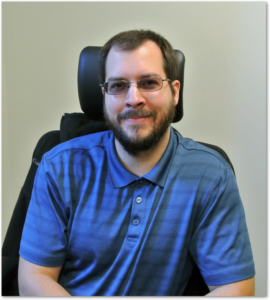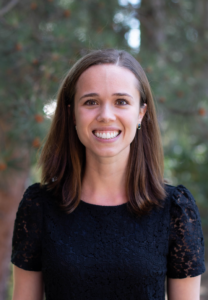During the Research Team experience, a small group of students (typically, 4-5) will study a particular topic in psychology in depth. Over the course of the academic year, the team works closely with their instructor to develop a hypothesis, design a study to test that hypothesis, submit an Institutional Review Board (IRB) application for approval to conduct the study, analyze the data collected following execution of the study, and report the study. In addition, the team reports their study orally at both local (i.e., the departmental Psi Chi Symposium and the university-wide Research and Creativity Day) and regional (i.e., the Virginia Psychological Association conference) venues. Typically, students produce an APA-style paper based on the project suitable for submission to a professional journal also. Last, the group may decide to produce a poster for presentation at a national conference, and may decide to prepare and submit a paper to a professional journal.
Research teams are populated during the spring semester prior to the start of the PSYC 491 course during the subsequent fall semester, and students commit to taking both PSYC 491 that fall and PSYC 492 the following spring. Professors who will supervise a research team present their topics and ideas at a “Research Showcase,” and if you find a professor whose research interests match your own, you may ask to be a part of that professor’s research team.
Students who complete the Research Team experience enroll in PSYC 491 – Individual Study for 3 credits in the fall semester, and PSYC 492 – Individual Study for 3 credits in the spring semester. Prerequisites for PSYC 491 include PSYC 261 – Introductory Statistics for Psychology, PSYC 362 – Research Methods for Psychology, and permission of instructor.
Scroll to read more about our current and future research team topics!
2024-2025 Research Team Instructors and Topics:
Dr. Mindy Erchull
Much of my research has focused on the objectification and sexualization of women, and this is the primary area I am considering as a focus for our team. We could, for example, ask some participants to imaging experiencing sexual objectification in different contexts (e.g., on a date, at work, on the street, etc.) and then measure a variety of outcomes including a sense of personal power, self-objectification, depression, and anxiety.
We could also explore how race and gender may influence how scientists are perceived when they publicly apply their knowledge and training to culturally relevant issues like global warming, gender equity, etc. – a project another team of students started to work with on me before it was derailed by covid.
That said, I am also open to broader topics connected to gender and sexuality such as how we perceive women in different roles, attitudes toward menstruation, etc.
I have, generally, had great success in publishing with my research teams, and this is a goal I have for our team as well. If these ideas are intriguing to you, I’d love to have you join me for a collaborative year.
Dr. Marcus Leppanen
Students interested in being on my research team should have a broad interest in cognitive psychology. In general, my research interests include memory, attention, emotion, and how individual differences are related to those processes (e.g., handedness, mindfulness, self-efficacy). This year I plan on conducting an experiment using eye tracking methodology. Students on my research team (or not) have the opportunity to work on a project with me in the Arts, Humanities, and Social Sciences Summer Institute (AHSSSI) which would occur during the first summer session (May to June). I will provide more details about this experience during the in-person meeting. You should email me with questions if you cannot attend. Participation in the summer program is a preference but it is NOT a requirement for membership on my research team. As a place to start, I am currently interested in continuing my research looking at the relationship between test-taking anxiety and how attention is allocated during online quizzes/tests but welcome student input. For example, we could determine what individual differences we are interested in relating to performance on the task. My research teams conduct in-person laboratory experiments to collect behavioral and self-report data.
Dr. Christine McBride
My research teams tend to explore why we eat what we eat. We have studied attentional focus on food using the eye-tracker, the roles of guilt and mindfulness in stress-induced eating, the types of stressors (e.g. cognitive or social) that elicit eating behavior, how descriptive norms impact eating, and the impact of menu design. We have studied eating in both adults and children. One of my previous research teams studied how and why people justify decisions to eat “junk food”. For example, have you ever said to yourself, “If I study for 10 more minutes, I can go have some ice cream!” We found that those who put effort into a task tend to indulge on more potato chips and chocolate than those who do not put in effort and following up on this line of research would be fun. Generally, I anticipate my team using both survey research and creative laboratory-based experimental designs to answer research questions about eating behaviors.
While my research teams in the past have generally worked in the general area of eating behavior, I’m open to considering other areas of health psychology that the team agrees on such as exercise motivation or stress-related behaviors. I’m looking for students who are extremely reliable, motivated, inquisitive, and love the research process! Our goal will be to present at a national or regional conference if funding is available.
Dr. David Stahlman
Dr. Stahlman’s 491/2 research team will perform experimental behavioral work using a nonhuman animal model, the laboratory rat. In addition to the typical 491 team responsibilities (e.g., literature review, experimental design, data collection and analysis) team members will have roles in animal handling and care. It is often surprising to students how much we don’t yet know about basic behavioral processes—and it will be largely up to the students what open question(s) we seek to tackle. In the past, my teams have studied spatial learning (e.g., in mazes), novel object recognition and its relation to creativity, non-associative learning, the control of behavioral variability, and other topics.
Dr. Laura Wilson
Research has shown approximately 70% of adults in the United States experience at least one trauma during their lifetime. This experience could involve surviving a car accident, physical attack, sexual assault, natural disaster, or mass casualty event. Some trauma survivors report mental health difficulties, such as sleep disturbance, changes in mood, and concerns about future safety. However, the majority of survivors are resilient in the aftermath.
My research generally focuses on understanding how survivors cope following these events. I am leaving the options open in terms of the particular topic the team will focus on, as long as it falls under the theme of trauma psychology. Most of my research focuses on the psychological impact of sexual assault, and I am leaning toward focuses on that particular form of trauma. However, if the team has other types of trauma in mind for the focus of our project, I am open to that. In terms of possible research questions, we could look at why some people are resilient after trauma, how societal attitudes impact trauma survivors, or the mental and physical health consequences of trauma. But, again, I am open to suggestions and the team will figure this out together.
If you want to be part of this team, the most important thing is that you need to be comfortable with talking about trauma. If you are concerned that the topic may be triggering for you personally, then I would recommend not ranking my team.
2023-2024 Research Team Instructors and Topics:
Dr. David Kolar
Human actions are causing harmful changes to the environment and researchers have called for social scientists to more closely examine how human behavior impacts the environment as well as what people can do to help conserve the environment. Next year my research team will focus on how we can take what we know about psychology and apply it to issues related to the environment. In previous years my research teams have studied a variety of things related to the environment including food waste, water use, attitudes about the environment, and cognitive processes that influence environmental behavior. I am open to doing research in any area related to environmental issues and psychology next year and will leave the exact nature of the research up to the students working with me. Please note that you don’t have to be an expert on environmental issues to be on my team, but you should be interested in them. Some possible questions/areas include: 1) Overconsumption: People in the U.S. buy more products and consume more resources than most other countries. Why? What can we do to change this? 2) Why are some people more concerned about the environment than others? 3) How can we change behaviors related to the environment? 4) How do attitudes about the environment develop and are there age differences in environmental behavior? 5) How do others influence our attitudes about the environment? 6) An applied study with a local non-profit environmental organization.
Dr. Marcus Leppanen
Students interested in being on my research team should have a broad interest in cognitive psychology. In general, my research interests include memory, attention, emotion, and how individual differences are related to those processes (e.g., handedness, mindfulness, self-efficacy). This year I plan on conducting an experiment using eye tracking methodology. Students on my research team may have the opportunity to work on a project with me in the Arts, Humanities, and Social Sciences Summer Institute (AHSSSI) which would occur during the first summer session (May to June). I will update students with details on whether this opportunity is actually being funded and what it would look during the in-person meeting (email me with questions if you cannot attend). Participation in the summer program, should it occur, is NOT a requirement for membership on my research team. I am currently interested in a project that examines test-taking anxiety and how attention is allocated during online quizzes/tests but welcome input on student interests. My preference is to determine a topic through group discussions with my team. My research teams conduct in-person laboratory experiments to collect behavioral data and often also include self-report measures.
Dr. Miriam Liss
My research team next year will be doing a community based project implementing a mindfulness intervention to children at a local school. My hope is for them to use that as a springboard for developing an additional research project on the topic of mindfulness. The community based project will be done in collaboration with Well Spring Child and Family Services a local clinic headed by Dr. Beth Jerome a UMW graduate. We have been working with Spotsylvania county schools so that members of my team can work with a school in Spotsylvania county and provide Mindfulness training to children at that school. The schools we are looking at are Spotswood Elementary and Berkley Elementary although the details are still being worked out. There is a curriculum developed called Mindful Schools which is very straightforward and fun to implement. However, there is also a possibility that Dr. Jerome at Well Spring will develop a curriculum that she will train you in. My plan is to have students get trained to do a mindfulness intervention (by Dr. Jerome) and to collect data from teachers on how it affects their wellbeing, their mindfulness, and their feelings about teaching. This will give students on my team the ability to learn fantastic clinical skills in mindfulness and gain practice working with children. However, we will also have time to read and think about the literature on mindfulness and develop a project on mindfulness of our choosing. For this project, I will let the team decide the direction but my thoughts are to apply for money to use a paid research website (such as Prolific) to look at both people who meditate and do not meditate. I am particularly interested in how mindfulness practices can help people deal with stress that comes from a variety of sources (e.g., trauma, discrimination, etc). Please note, I have put a lot of leg work into developing these community connections and I am confident that we will be able to make the community aspect work. However, when working with the community there is always uncertainty so my team would need to have a flexible and positive attitude!
Dr. Erin Palmwood
My research uses electroencephalography (EEG) to explore different aspects of romantic relationship functioning. Next year, I’m planning to conduct a study examining neural indicators of distress following exposure to stimuli related to a former romantic partner. In other words, I’d like to show people photos of their exes and see how their brains respond! Although this basic framework of the study has already been established, my team will ultimately decide which other variables to examine (e.g., psychopathology, relationship experiences, personal characteristics) as potential moderators of breakup-related distress. Familiarity with brain research is not necessary to join my team! I particularly enjoy working with students who are highly organized, conscientious, and excited about research.
Dr. Hilary Stebbins
My research interests revolve around two topics. First, I am interested in the neurotransmitter dopamine and how individual dopamine functioning relates to our behavior. One correlate of dopamine function is the spontaneous eyeblink, which we can measure with electrooculography (EOG). Dopamine has been linked to a number of interesting traits such as reward-based learning, impulsivity, creativity, addiction potential, and even egalitarian behavior. Second, I am interested in factors related to sleep such as how sleep deprivation and circadian preference (whether you are a morning or evening person) impact cognitive performance and behavior. Ideally, I would like my 491/492 team to find a way to link dopamine and sleep deprivation. For example, one of my past teams found that as people report higher levels of sleepiness, they shower higher dopamine function and also have more difficulty controlling impulsive actions. However, we will work as a team to design one or more studies during the year and I am open to the direction of the research as long as it involves one of my variables of interest. You do not need to have a strong background in biology to work on this project, but you do have to be motivated to learn about these variables and be committed to doing experimental work in the lab. If you have questions or are interested in learning more about these variables, stop by my office (Mercer 328) or send me an e-mail (hstebbin@umw.edu).









